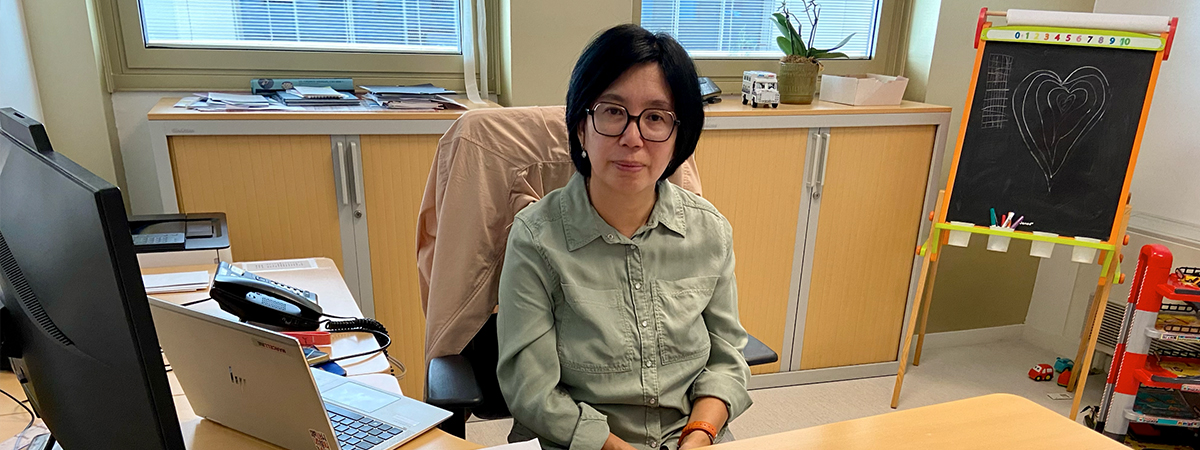Campagnes de sensibilisation
How to Detect and Live with Specific Learning Difficulties (SpLD)?
Dyslexia, dysorthographia, dyscalculia, dysphasia, dysgraphia… Behind the term “Dys disorders” — or more accurately, specific learning difficulties (SpLD) — lie conditions that affect around 6 to 8% of school-age children. Dr Marcelline Renaud-Yang, child and adolescent psychiatrist at the Centre Plati, explains these specific learning difficulties, which are neurological in origin and typically identified during childhood. MonacoSanté offers guidance and information on the topic.
A long-lasting condition affecting cognitive or executive functions
Specific learning difficulties (SpLD), or language and learning disorders, are characterised by cognitive difficulties that appear in various areas such as oral and written language, coordination, and attention. “These are long-term disorders that involve the neurological system, and develop progressively during a child’s growth. They are described as specific because they cannot be explained by intellectual disability, sensory impairment, another neurological condition, or educational factors”, explains Dr Marcelline Renaud-Yang, child psychiatrist and Head of Department at the Centre Plati in Monaco. According to recent studies, these disorders affect 6 to 8% of school-aged children. In over 50% of cases, they are accompanied by other cognitive or executive difficulties. “For example, dyslexia is often associated with dysorthographia, or dyscalculia with dyspraxia”, illustrates the specialist. Diagnosis usually begins at school, when teachers or school medical staff alert parents. “A clinical and functional assessment is then required to determine whether there is a developmental delay or whether specific stimulation needs to be introduced”, notes the psychiatrist.
A long and delicate diagnostic process
Establishing a diagnosis of specific learning difficulties requires time and patience. Between identifying the difficulties and confirming the disorder, several stages are necessary. “When a child comes in for consultation with a speech therapist or another specialist, an initial functional assessment is carried out. This helps compare the child’s abilities with those expected for their age and to assess any delay, in order to set up an appropriate treatment plan. After six to nine months of intervention, a new assessment is performed to measure progress”, explains Dr Renaud-Yang. If difficulties persist, the hypothesis of a disorder rather than a simple delay is considered. When associated difficulties are suspected, the child may be referred to the Learning Disorders Diagnostic Centre (CDTA) at the Centre Plati. Around 600 young people are monitored there for various psychiatric conditions, including specific learning difficulties. “After about a year to a year and a half, if progress remains limited despite all the re-education provided, we can start to suspect such a disorder and carry out broader testing to rule out other possible causes, stresses the Head of Department. This period is essential because such a diagnosis carries significant consequences. It has a lasting impact on an individual’s functioning, whether academically, professionally, socially or personally.” In some cases, the child may be referred to regional specialist centres, such as the CERTA at the Lenval Hospital in Nice. “Their facilities are more extensive than ours, with even more in-depth evaluations and, in some cases, genetic testing for severe disorders.”

“Not about intelligence, simply a difference”
At the Centre Plati, 27 professionals work together: speech therapists, neuropsychologists, psychomotor therapists, specialised educators, child psychiatrists, an art therapist, and social workers ensuring links with schools. “We have partnerships with the Centre Princesse Stéphanie, with the association Jeune J’écoute Monaco, with the theatre group Les Farfadets, and with an equestrian centre for equine therapy. We also use specific tools, such as the MéloDYS method, which employs rhythm and music to improve oral and written language skills”, explains the psychiatrist. In small groups, children aged 5 to 7 benefit from this innovative approach. “Studies have shown that, at the level of neurological functioning, the same brain areas are activated when learning musical rhythm and when learning phonology, metaphonology or reading”, adds the doctor. The Monegasque centre also uses the “ neurofeedback”, technique for cases of attention deficit disorder with or without hyperactivity (ADHD). “It is a new technology that uses brain waves.”, she explains. The aim is to show children and adolescents that these disorders are obstacles but not necessarily disabilities. “Since these disorders are often associated, speech therapy is required, sometimes combined with cognitive or attention-based support, and in certain cases, psychological counselling. Psychoeducation is essential — explaining the symptoms to families and children. They often feel guilty for not performing as well as others. It is crucial to make them understand that this is not about intelligence, but simply about difference.” Dr Renaud-Yang also cites the work of Nice-based neuropsychologist Jérôme Bianchi, who created and published the online manual Identidys (www.identidys.com). “It is a remarkable tool to help parents and teachers identify signs even before a medical consultation.”
Parents and schools: essential partners
No treatment plan would be effective without the involvement of parents and schools. In Monaco, personalised support plans (PAPs) can be implemented to adapt schooling for children with SpLD. “PAPs consist of adjustments designed to make learning easier and adapt to the child’s difficulties. This might mean granting extra time for a child who struggles with writing or adapting dictation exercises for dysorthographic children”, explains Dr Renaud-Yang. These measures are implemented through cooperation between schools and the School Medical Inspectorate. The Department of Education in Monaco has multiplied initiatives: support classes, tailored pathways for pupils with learning difficulties, and specially trained teachers. The Monaco Parents’ Association also plays a very positive role. Families themselves are essential in this care model. “Parents know their child better than anyone. They can become frustrated because they expect a rapid diagnosis and immediate results. We must explain that specific learning difficulties cannot be cured, but they can be compensated for. What we aim to highlight are the child’s strengths. We develop tailored strategies, which depend on the collaboration and acceptance of both parents and children”, says the doctor. The multidisciplinary team at the Centre Plati places great emphasis on building a strong relationship with families. “Without parents, there are no children for us. Sometimes the school or partners strongly encourage them to consult us, but they are not ready or feel their child is too young. I will not act against their wishes — parents must understand why they come to us”, says the psychiatrist. Despite the long-term nature of specific learning difficulties , Dr Renaud-Yang delivers a message of hope: “Development may involve obstacles, but they can be overcome. Having a specific learning difficulty does not prevent academic or professional success. The key is to discover who you are, what you love, and what makes you thrive. The ultimate goal is to find your place in society and live happily.”

